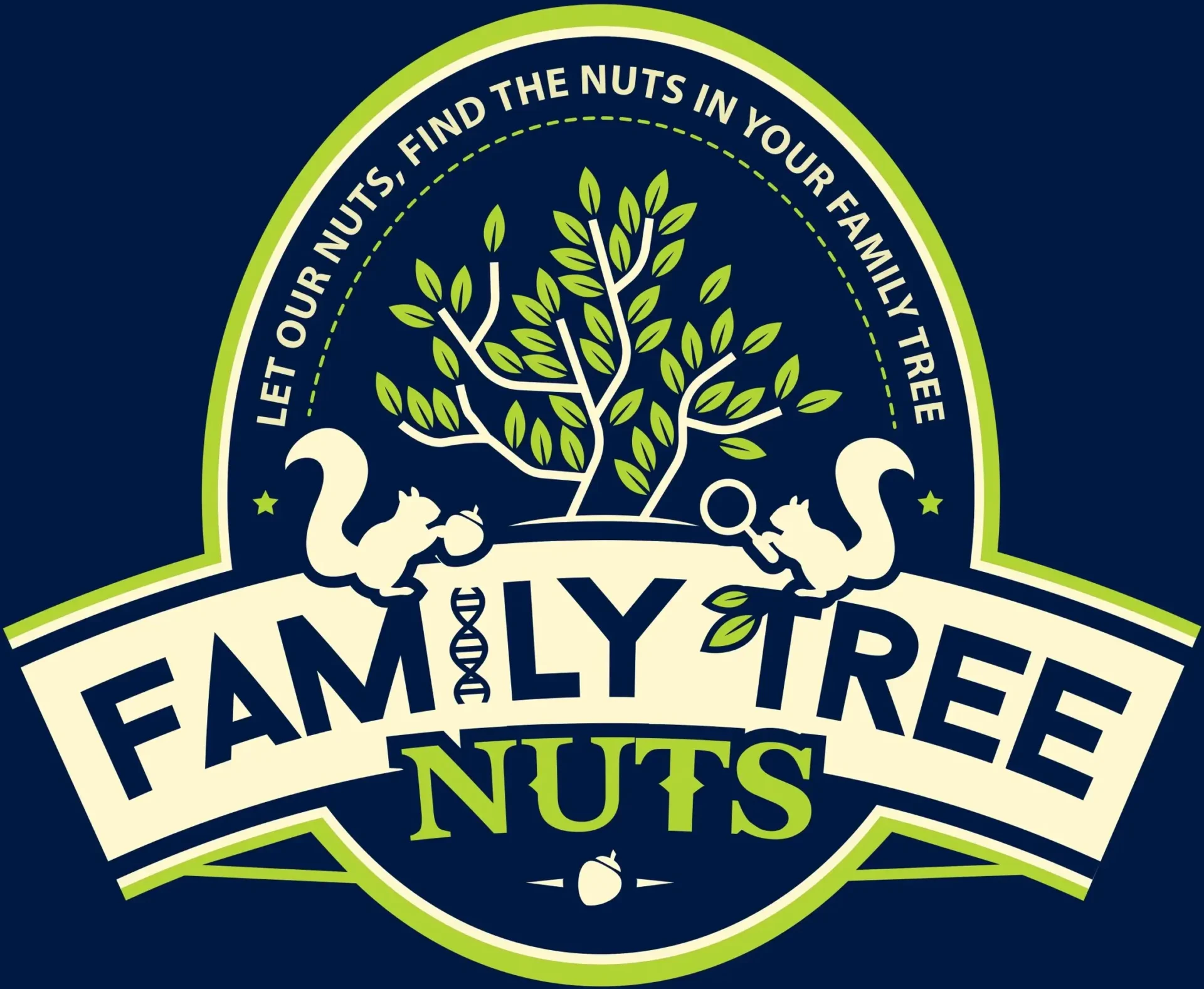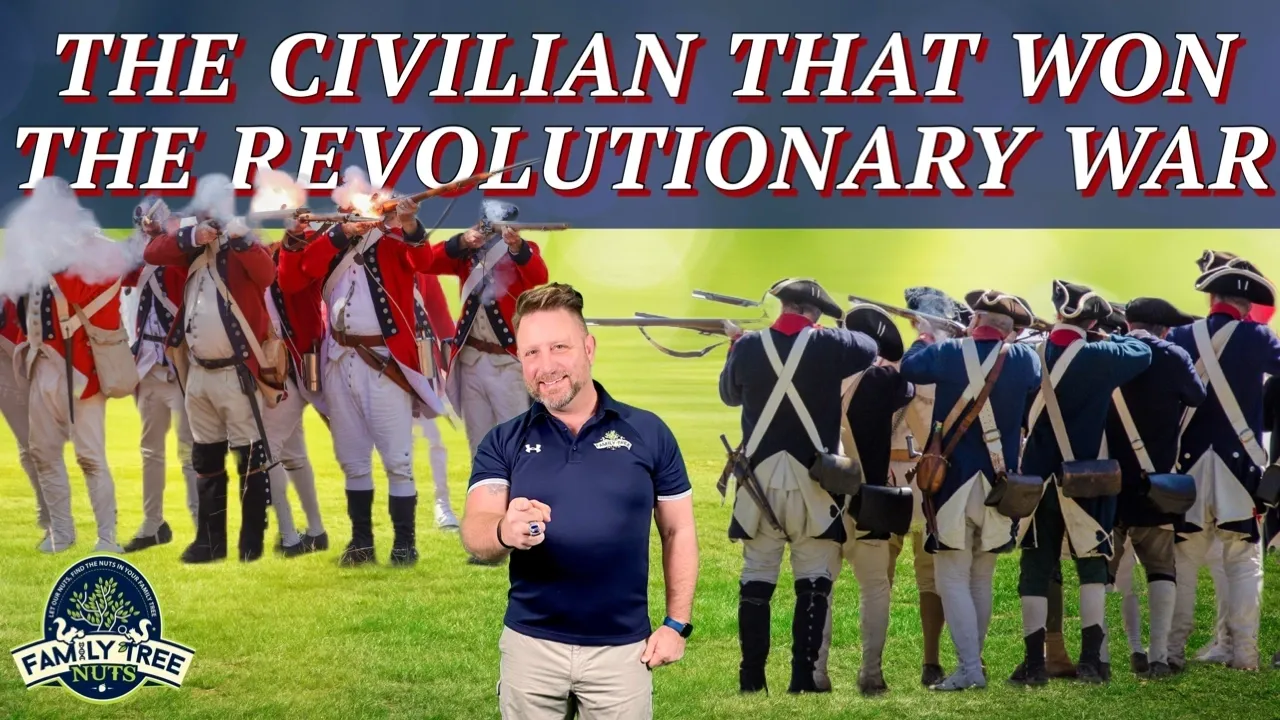
THE CIVILIAN THAT WON THE REVOLUTIONARY WAR!
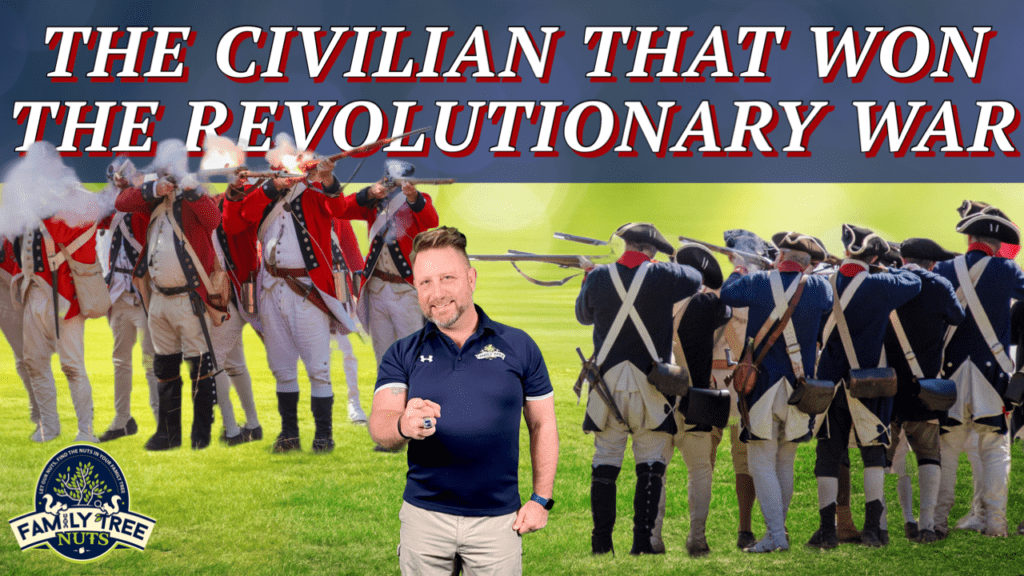
The civilian that won the Revolutionary War! What? A civilian? Your probably asking, why have I never heard of this, and has this guy totally lost his mind? Actually, I haven’t lost my mind, and I’m going to share a story with you that hardly anyone has heard of, and I’m going to make my case. At the end of this video, let me know if I’ve convinced you or not.
Recently I was building a family tree for a client I found this wild story about his 6th Great-Grandfather John Nicholas Whisenant. The more that I discovered about him, the more I knew that I wanted to share his story with all of you.
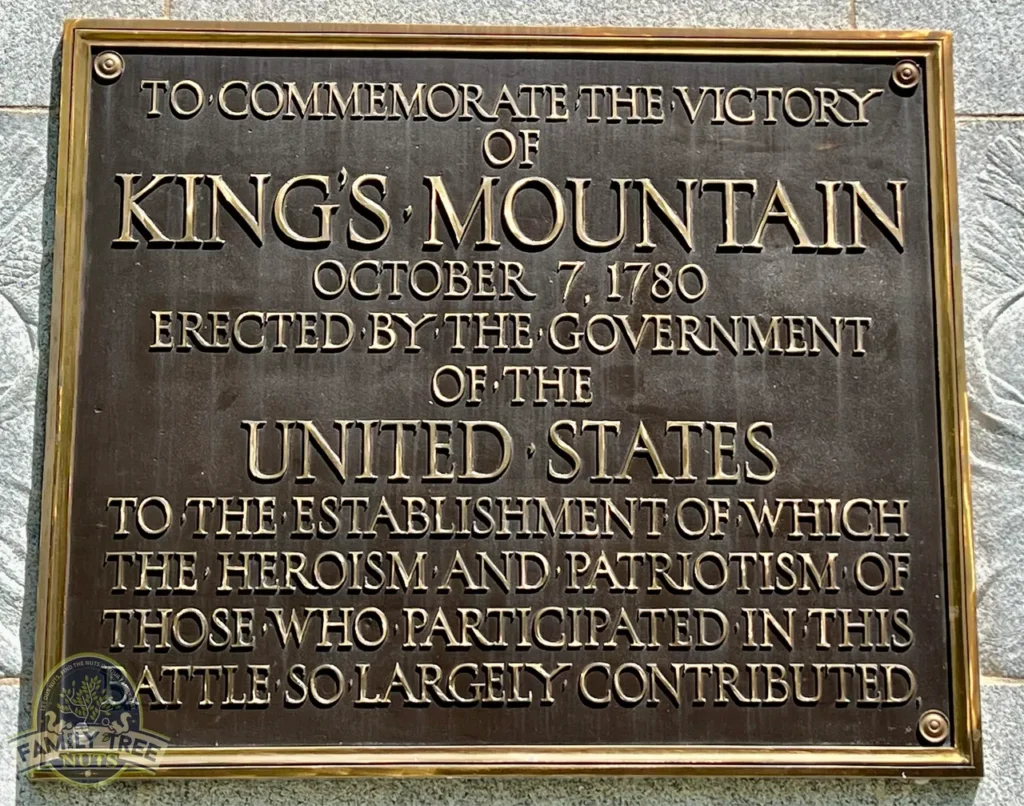
Our hero of today, and the civilian who won the Revolutionary War, is named John Nicholas Whisenant, who was born on 30 July 1743, in Muddy Creek, Lancaster County, Pennsylvania. His father was a German immigrant, and his mother was an immigrant from Switzerland. He was raised in the German speaking communities of Central Pennsylvania, and he married Mary Elizabeth Carpenter in 1768, who also had German immigrant parents.
Like so many German and Scots-Irish families, John moved his family to the frontier of the western Carolina’s, around 1770. He purchased land and established a successful grist mill in a community that would soon be the home of one of the most important battles in the Revolutionary War.
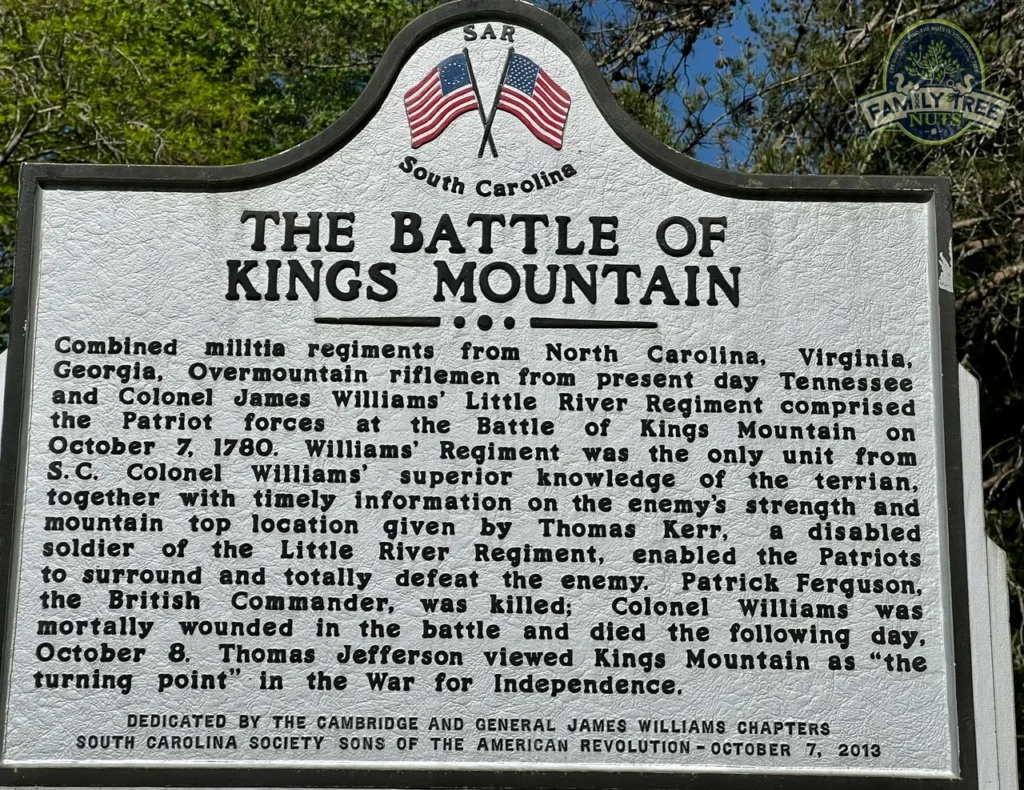
In 1780, General Lord Cornwallis went on a mission to subdue the south and began his march through South Carolina. One of his flanks was protected by the infamous Colonel Banastre Tarleton, and the other flank was protected by Colonel Patrick Ferguson. Ferguson put out the threat that if the settlers on the mountain frontier didn’t submit to the English Crown, that he would destroy their homes, hang their leaders, and lay waste to the land with fire and sword. As you can expect, this got the Overmountian Men in Eastern Tennessee fired up and they reported in droves to link up with other patriot militia groups to confront Ferguson.
Colonel Ferguson knew that a battle was imminent and when the patriot militia groups grew close enough, he chose his location to set up his defenses on a little hill known as Kings Mountain, and he waited for the attack.
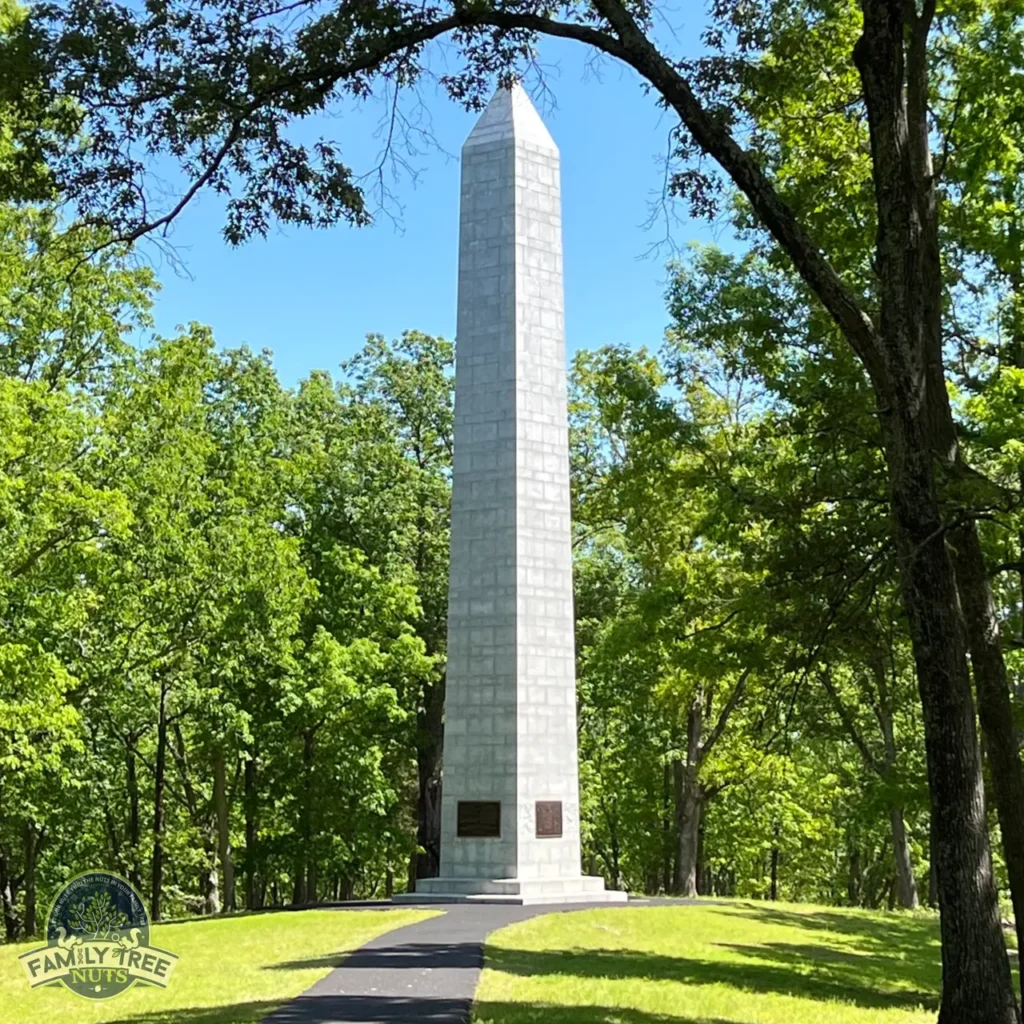
When the militia groups arrived near Kings Mountain the Overmountian Men convinced Lt. John Adair to lend them $10,000 of tax money to buy horses and supplies to fight the battle. Lt. Adair didn’t have any power to lend the money, but he understood the seriousness of the moment and provided the Overmountian Men with the funds, and they headed off to buy the needed supplies. The last structure before the men reached Kings Mountain was a church. The structure before that was John Whisenant’s grist mill. Here the Overmountain Men purchased supplies and were donated even more from Whisenant.
The next morning, the Patriots surrounded King’s Mountain, and routed the British soldiers and the Tory Militia. Colonel Ferguson was killed in the battle, and to this day, he is still there. This battle was extremely important to the Patriot cause because it ended up being the turning point for the war in the south. Up to this point, the Patriots had suffered defeat after defeat, but after the Battle of Kings Mountain, a new sense of morale was found in the Patriot cause which eventually launched them to victory in the war.
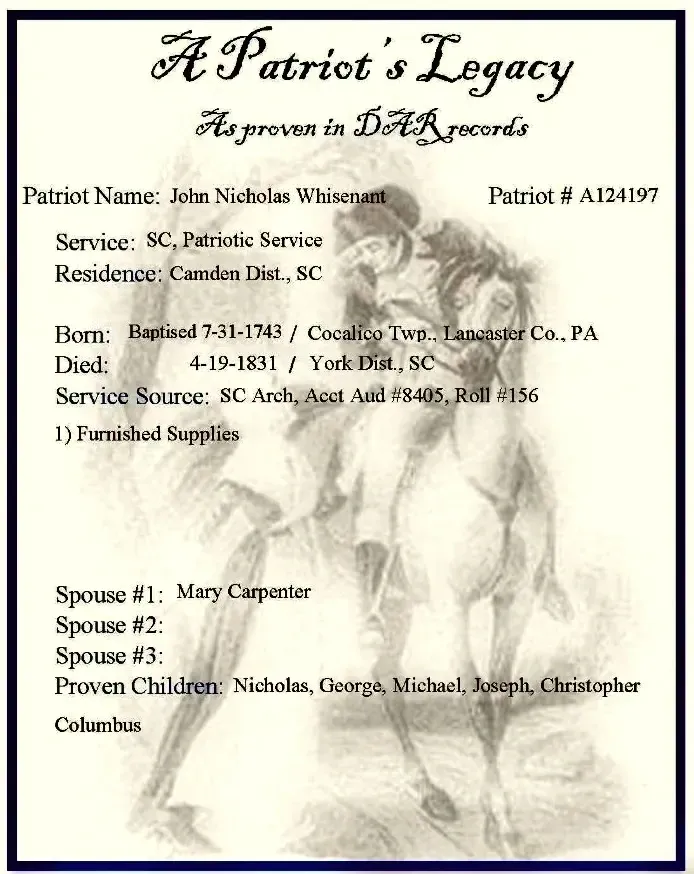
A few weeks later, many of these same Patriot’s defeated Colonel Banastre Tarleton at The Cowpens which made Cornwallis’ army completely unprotected. The British soon took extremely high casualties at their “victory” at the Battle of Guilford Court House, and a few months later Cornwallis surrendered at Yorktown. The American Patriots had won their independence.
John Whisenant lived out the rest of his days along the border of North and South Carolina and became a successful businessman. He died 19 April 1831, in Antioch, York County, South Carolina, and is buried in Antioch Baptist Church Cemetery, in Blacksburg, Cherokee County, South Carolina. For his service of providing and donating supplies to the American troops, John is considered a Patriot by the DAR & SAR.
Another interesting connection for John Whisenant, is that his grandson married the great-granddaughter of Lt. Col Frederick Hambright, one of the heroes form the Battle of Kings Mountain. Hambright fought in many battles, but his career ended at Kings Mountain when he was severely wounded in the leg. By the way, both John Whisenant, and Lt. Col Hambright are grandfathers of our client, and ancestors that he never knew existed.
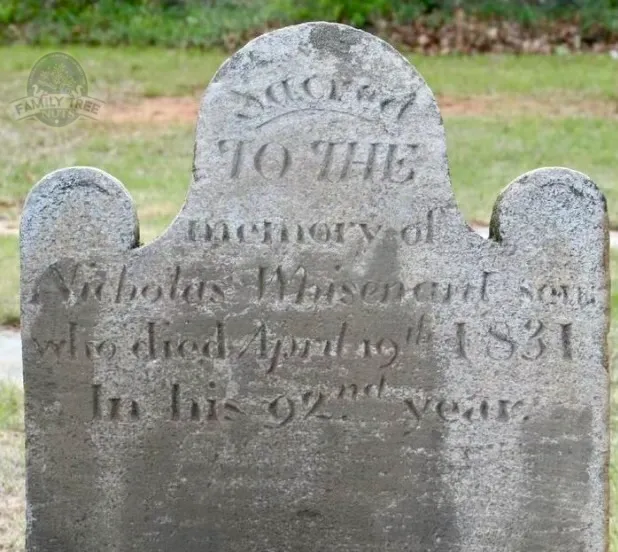
The argument can be made that John Whisenant is the civilian that won the Revolutionary War. Had he not sold and donated the supplies to the Patriots, in their desperate time of need, the outcome of the Battle of Kings Mountain could have been different. Ferguson could have destroyed the militia, did what he said he would do and lay the land to waste with fire and sword. That would have drastically diminished the moral and spirit of the Patriot cause. Colonel Tarleton would not have been defeated a few weeks later at The Cowpens. General Cornwallis would have had his protection and either crushed the Patriot Army or have been able to escape at Yorktown. Without the defeat of General Cornwallis, the war would have been prolonged and without the support of the population, the Patriots would have likely been defeated and the United States may have never existed. John Whisenant in a sense, won the Revolutionary War for the Patriots. What do you think? It’s fun and interesting to speculate at least.
Wow, now we know the story of John Nicholas Whisenant. What are your thoughts? Were you shocked by this story? How would it affect you if you discovered a story like this about one of your ancestors? I’d love to hear what you have to say in the comments below. And I wonder what stories like this could be hiding in your family tree.
When we discover stories about our ancestors, especially like this one, history becomes tremendously more real. The events and locations that we read about or drive by, begin to have a different impact on us and we are bestowed with a deeper enlightened understanding. Discovering and preserving stories like this is a passion of ours and we are proud to discover this one, share it with their descendants, and all of you.
-Col. Russ Carson, Jr., Founder, Family Tree Nuts
